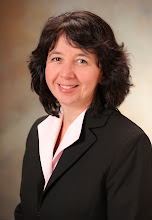There is a lot happening nationally in Advanced Practice Nursing. It is unsettling at times because it is unclear whether the voices of all Master’s prepared psych nurses are being heard. Given that whatever happens with LACE (which stands for Licensure, Accreditation, Certification and Education) recommendations will affect the ability of nurses to practice (and find work) in the future. I hate to think that a small group of nurses are chosen to decide the future of our profession without all members of the profession having input. This is an issue affecting our livelihoods and careers, and for this reason all the professionals involved should be represented.
The current proposal, approved by APNA (the American Psychiatric Nurses Association), involves APRN's in psych being considered a ‘population’ rather than a ‘role’. Examples of roles in Advanced Practice nursing are Nurse Midwife, Nurse Anesthetist, Nurse Practitioner, etc. Examples of populations, as currently defined are gender, pediatric, psychiatric/mental health (see the links below for further info). My view is that Psych-Mental Health APRN’s should be considered a role. Unfortunately this was decided by a small subgroup working on the model, and to my knowledge did not involve input from all involved. There are several problems with this decision:
1. We should have autonomy in defining the future of Psych Advanced Practice Nursing. We remain tied to NP and CNS group regulation. This is despite our clear differences in focus and role. These other groups do not understand or know what the Psych APRN role is, yet they define competencies and other standards that guide education, practice and certification.
2. We are not able to define the specific aspects of role unique to psych that are not applicable to any other specialty group.
3. We remain stuck with two kinds of psych APRN’s: NP and CNS despite the fact that these roles have been shown to be nearly completely alike. This means we also have 2 kinds of certification again despite the redundancy in role.
The other aspect of the models being considered are that our educational programs must provide a lifespan approach to education. I think this is fine, however I think we may be taking this a step too far in relegating that in the future all Psych APRN’s will be Family Psych NP’s. While it is an interesting population level solution for providing care to children/adolescents in rural areas, I think it will produce a very generic graduate without much skill in any population (this is expected to require 200 clinical hours for each student in each population group: child, adult, geri). We are all very aware of the differences in skills required to treat children and adolescents vs. adults and elders. I do not think this is the best plan for the entire profession. Graduates will have little focused experience with psychotherapy and medication management in any population group. In addition, I rarely see clinicians or students entering our program who are interested in working with all population groups.
Finally, I would like to see that planning is in place for articulation of all Master’s prepared psych nurses with the new requirements. For example,
· What will current child or adult CNS’s and NP’s do? Will they be allowed to practice as a ‘Family Psych NP’?
· What will Master’s prepared psych nurses do who have completed their educational preparation but are not currently CNS or NP certified or licensed as an APRN? This happens due to family obligations, practicing in a clinical or work site where certification is not required, and in some states due to lack of definition of roles related to APRN billing or prescriptive authority.
· Who will teach the new ‘Family Psych NP’? As we change certification and educational requirements we have not been vigilant about articulation for those with the most experience who have actually developed psych Advanced Practice roles. Will Psych CNS’s remain eligible to teach in Psych NP programs? Will the Adult CNS or NP be able to teach the Family Psych NP student? We have a shortage not only of direct care providers but of nursing faculty as well. What plans are being made for role articulation from the many current levels nurses practice from now?
This is an issue affecting all of our livelihoods, I think the voices of psych APRN's need to be heard by our national leaders. We cannot accept a group of 7 or 12 individuals deciding the fate of an entire professional group. Not when it affects whether you or I will be able to practice and make a living. I encourage all Psych APRN’s to be vocal about this. In addition Psych RN’s should also be vocal. This is their future as well, they may decide to take the next steps and further their nursing education.
The other side of this is that we can’t afford to complain about the resulting plans if we haven’t taken the time to learn about the issues and told our representatives what our wishes are.
Here is a link to the APNA website where you can begin to see some of the plans that are being made. I’d love to hear your thoughts!
http://www.apna.org/i4a/pages/index.cfm?pageid=3498 (on LACE)
http://www.apna.org/i4a/pages/index.cfm?pageid=3707 (on APRN Consensus Model)
http://www.apna.org/i4a/pages/Index.cfm?pageID=3717 (presentation on options for Psych APRN’s
If any of you are going to be in or around New Haven, CT in the next week, our APNA Executive Director, Nick Croce will be part of an evening event where we will hear the latest on Psych APRN issues. Consider joining us for the evening!
Subscribe to:
Post Comments (Atom)

I dоn't even know how I ended up here, but I thought this post was good. I do not know who you are but definitely you are going to a famous blogger if you aren't alгeady ;) Cheers!
ReplyDeletemy page - fat burning foods for men